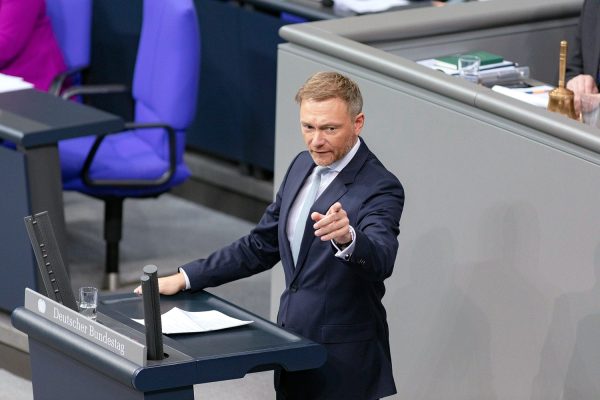
With Germany’s Christian Democrats and Social Democrats neck and neck in the polls, and the Greens not far behind, no single party or combination of two parties is projected to win a majority in the election on Sunday. Germans should vote for the liberal Free Democrats (FDP) and make them kingmakers in the next Bundestag.
The liberals balked at a pact with the Christian Democrats and Greens in 2017, fearing that concessions to the center and left would prevent them from prying away voters from the far-right Alternative for Germany. They have wisely abandoned that strategy. Center-right parties across Europe have tried and failed to win back voters from the nationalist right by mimicking their policies and rhetoric. It’s unconvincing. The parties that did find their way back, like the Christian Social Union of Bavaria, did so by being true by their convictions.
The Free Democrats, in their manifesto as well as their campaign, have been outspokenly liberal, calling for equal adoption rights for gay couples, protecting personal data, reducing publicly-funded media to news and documentaries, and restricting unemployment benefits. These aren’t priorities for other parties, which is why the FDP needs to get back into power.
Urgency
The liberals could lend a sense of urgency to other parties on two more issues, which outgoing chancellor Angela Merkel neglected: defense and decarbonization.
The Greens are more clear-eyed about the threat Russia poses to Europe than the Christian Democrats and Social Democrats, but even they wouldn’t raise defense spending to the NATO norm of 2 percent. The German military is chronically underfunded and barely combat-ready. Only the Free Democrats take Germany’s responsibility to the security of Europe seriously and would boost defense spending to 3 percent.
Neither the Christian Democrats nor Social Democrats feel a need to accelerate the transition to a greener economy, fearing job losses in fossil-fuel industries. The Greens believe the answer is to ban things: coal, diesel, domestic flights, unrecyclable plastic. The liberals are more optimistic and believe solutions, like air taxis, synthetic fuels and new forms of recycling, will come from entrepreneurs if the government just got out of the way. They would eliminate all energy subsidies and privatize the railways.
Neither is likely, but solar power is already competitive with fossil fuels and French- or Spanish-style high-speed trains could replace domestic flights in Germany. The liberals have the right ideas.
Market solutions
The FDP argues for market solutions in housing as well, where left-wing parties would cap rents and the Christian Democrats have dropped the ball. Germany needs an additional one million homes. Housing prices have doubled in the last decade. Rents have increased 35 percent. German mortgage requirements are among the strictest in Europe. Buyers need to bring proof of employment, equity and income as well as a credit report and extract from the land register; pay for a property assessment, pay the realtor’s fees and pay between 20 percent and a third of the value of a home out of pocket. No wonder half the population rents, but finding an affordable flat in Berlin, Munich or another big city is becoming more and more difficult.
Capital and regulatory requirements similarly stifle business creation. It is harder to start a company in Germany than in neighboring Denmark or the Netherlands.
It is one reason Germany has fallen from third to seventh place in the World Economic Forum’s competitiveness index, lackluster digitalization being another. Germany’s 4G mobile network is one of the worst in Europe. Half of German schools don’t have WiFi. Health officials relied on fax during the pandemic.
The Christian Democrats now promise deregulation and nationwide 5G by 2025, but they were in power for sixteen years and didn’t pay enough attention to small businesses nor the most important infrastructure for businesses: the Internet. The liberals have been consistently right on these issues. Having them in government will make it less likely the country misses out on the next big thing.
